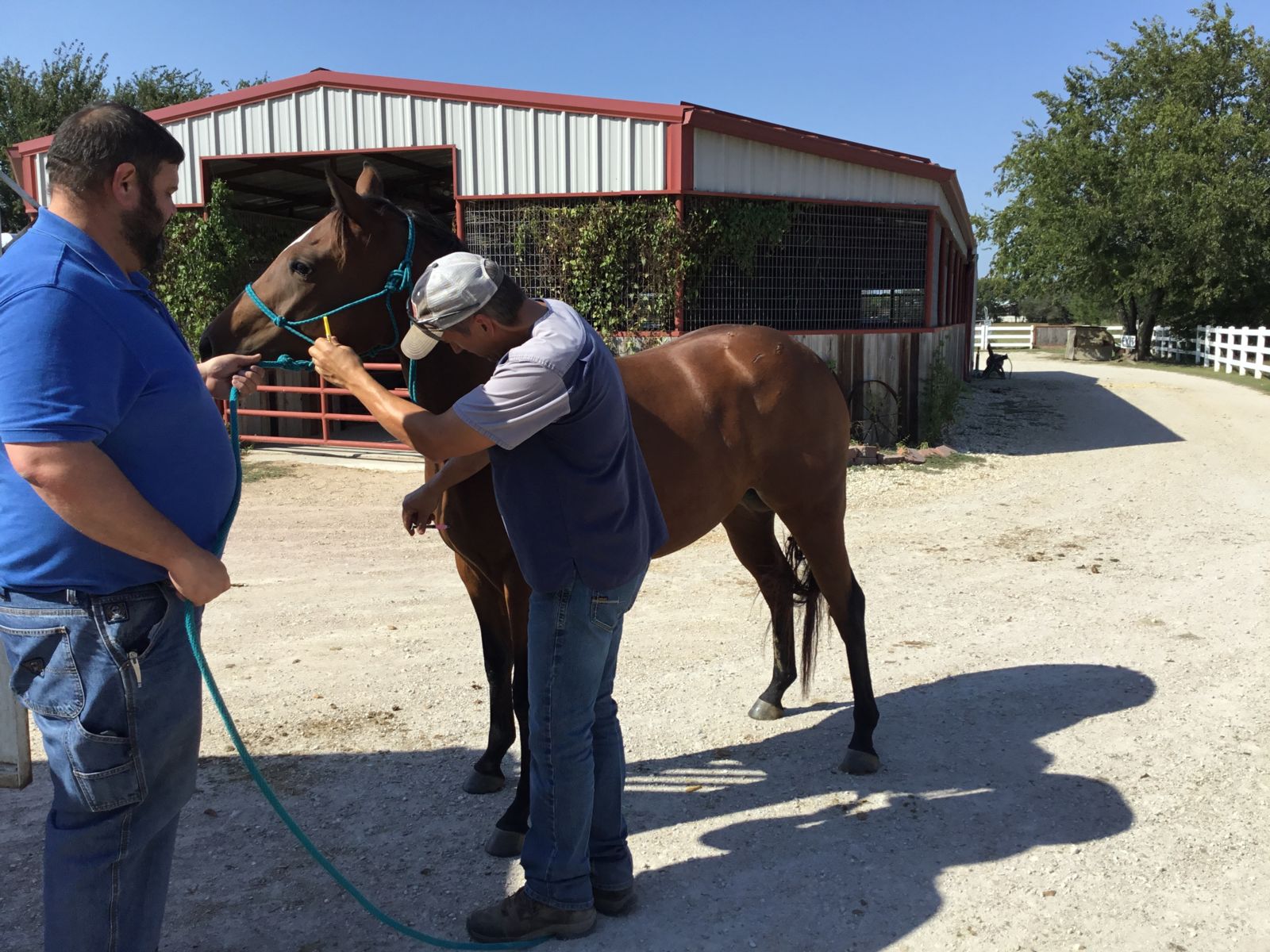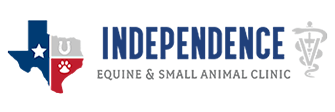Equine Vaccination Programs
We'll tailor your horse's vaccines to your needs.
The goal of vaccination is to develop and maintain both individual and herd immunity against infectious diseases. Commercial vaccines are available for rabies, encephalomyelitis (Eastern, Western, and Venezuelan), tetanus, influenza, equine herpesviruses 1 and 4, botulism, equine ehrlichiosis (Potomac horse fever), equine viral arteritis, rotavirus, West Nile virus, and Streptococcus equi (strangles). Vaccination programs are formulated based on the animal’s age, use, and level of exposure. Broodmare vaccination is important to provide active immunity for the mare and passive immunity for the foal via transfer of colostral antibodies. Vaccination guidelines for foals have been modified because of the interference of maternal antibodies with the initial vaccination response.
Tetanus: Clostridium tetani is present in all parts of the world. Tetanus occurs most commonly when wounds become contaminated with the organism from the soil. Vaccination is recommended for all horses and ponies on an annual basis.
Equine Herpesvirus 1 and 4 (Rhinopneumonitis): Two types of equine herpesviruses vaccine are available, EHV-1 and EHV-4. The EHV-1 virus is the primary cause of abortion and neurologic disease in horses. The EHV-4 virus is the primary cause of respiratory infections, especially in young horses. The control of rhinopneumonitis is by a combination of vaccination and good management practices. accine recommendations for foals are three doses every 4 wk starting at 6 mo of age, and a booster at 1 yr of age. Pleasure and performance horses should be vaccinated every 3–6 mo, depending on the risk of exposure. Broodmares should have an EHV-4 vaccination 2–4 wk before foaling to ensure the availability of colostral immunity.
Encephalitis: Eastern equine encephalitis (EEE) virus has a wide distribution. This includes the eastern USA, Central and South America, and eastern Canada. In the USA, EEE is seen primarily in the southeastern states but has been reported in all states east of the Mississippi River. EEE in horses is nearly always fatal regardless of treatment. Infected horses usually become comatose, seizure, and die in 36–48 hr.
Venezuelan equine encephalitis (VEE) virus causes outbreaks of disease in horses in Mexico, Central and South America, and occasionally the southern USA. The VEE vaccine is a single vaccine or in combination with EEE and WEE. Its need is limited to those horses traveling to or located in endemic areas.
West Nile virus (WNV) disease is considered a zoonotic disease similar to the encephalitis viruses. The bird population allows for maintenance of the virus, which is then transmitted by mosquitoes to both people and horses. There is very little risk of disease from any infected horses. Vaccination protocols for broodmares, foals, and adult horses are the same as those for Eastern and Western encephalitis. Combination vaccines that include EEE, WEE, and WNV are available.
Influenza: Influenza is one of the most frequent causes of viral respiratory disease in horses and is highly contagious among susceptible horses. Therefore, vaccination is recommended for all foals, broodmares, and horses at risk of exposure, usually as a result of showing, racing, or shipping.
Rabies: Signs of rabies include the inability to eat or drink, disorientation, and incoordination. Rabies is fatal, and also poses a health risk to those who handle infected horses. Prevention in horses is primarily via vaccination.
Potomac Horse Fever: Potomac horse fever (equine monocytic ehrlichiosis, equine ehrlichial colitis) is caused by Neorickettsia risticii. Vaccination is recommended in endemic areas, such as near freshwater streams, rivers, ponds, and heavily irrigated pastures.
Botulism: Equine botulism is mostly seen in the Mid-Atlantic area of the United States, but the disease has also been reported worldwide. In the USA, the most common types are B and C botulism, although type A has been reported in the western USA. Colostridium botulinum are found in the soil and are resistant to light, drying, and heat.
Streptococcus Equi Infection: Streptococcus equi infection (equine strangles, equine distemper) can be highly contagious. Use of the IM or intranasal vaccine is recommended only in those situations or on premises where the disease has been a problem. The IM vaccine involves three injections administered 2–4 wk apart.
Rotavirus: Foal diarrhea as a result of rotavirus infection can be a severe problem on some breeding farms. Single cases or a farm outbreak can occur. Therefore, pregnant mares should be vaccinated IM at 8, 9, and 10 mo of gestation. This will increase the amount of colostral immunoglobulins. It is a vaccine for use in particular situations or areas of high endemicity.
Equine Infectious Anemia: In the acute state, equine infectious anemia (swamp fever) causes severe RBC destruction and anemia. Once infected, a horse can become a carrier for life and is a threat to other horses. The virus is transmitted by bloodsucking insects. Currently, the disease is uncommon, and most horse owners are aware of its dire consequences. A simple blood test, the Coggins test, is available to detect infected horses.
Contact us at (940) 668-8282 for more information on your equine's vaccine schedule.

